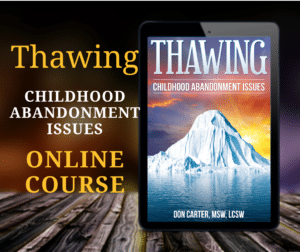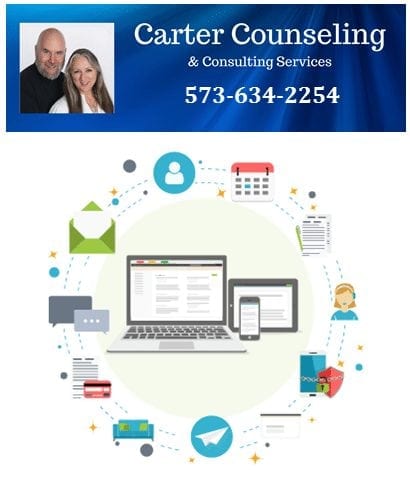
What is a Healthy Teenager?
What makes a healthy teenager? – NOT an easy question to answer, but here’s my best attempt…

The Healthy Teenager…
- Has been a happy child
- Has access to at least one healthy, well-adjusted parent
- Has available and approachable role-models
- Has a good self-image, self-concept, and self-esteem
- Is learning to identify and express emotions
- Is learning a good problem-solving strategy
- Is learning a good decision-making strategy
- Is learning to delay gratification of impulses
- Is learning effective conflict-resolution skills
- Is learning to accept responsibility for themselves
- Is learning how to have a intimate relationship
- Is developing good interpersonal skills
- Understands that love is unconditional, but trust is earned
Who ever said being a teenager is easy?? Look at all the neural networks that need to be established and developed in all of the following areas:
- Physical Development
- Psychological Development
- Emotional Development
- Social Development
To make things even more interesting… the adolescent years are the most disorganized time in anyone’s life. In fact, adolescence is about disorganization followed by the reorganization. The childhood years are highly organized and structured…
Your parents choose your clothes, your activities, your schedule, your bedtime – even your bath time. They make pretty much every decision that needs to be made concerning your life…and it’s okay with you! As far as you are concerned you are just so-and-so’s little boy or girl – this is your identity as a child.
Likewise, adulthood is highly organized, only now it’s you who decides what you will wear, where you will go, what you will do, when you will take a bath and go to bed. As an adult, you have become a fully-functioning human being – with your own identity and a driver’s license to prove it!
Adolescence is that period of chaos and disorganization when the structure of childhood gets torn down and replaced by the organization of young adulthood. The job of a healthy teenager is to answer the very important question – “Who am I”?
The Healthy Teenager and Physical Development
Physically, adolescence is a period of rapid growth. The extremities (hands and feet) grow first making for an awkward and clumsy stage. The neural networks have not kept up with these spurts of growth. They need time and repetition to adjust to their new size. This is when the teenager can become accident-prone – tripping, spilling milk, bumping into things, etc.
Since the nose and ears are extremities, they too can experience spurts of growth… making them look and feel too big for the face and head – not good for developing self-esteem. Breasts and genitals can also experience sudden growth spurts… or not – for so called “late bloomers”. This can also have an impact on self-image and self esteem, either a positive or negative impact depending on the child and circumstances.
The brain and central nervous system of the healthy teenager is “bathed” in neuro-transmitters… the chemicals responsible for mood, emotional regulation, sense of security, etc. This is why teenagers sometimes appear “giddy” can get into laughing fits over small things. The rapid changes in levels of various neuro-chemicals also explains why they can quickly become sullen and depressed. The brain and central nervous system of the healthy teenager is undergoing a huge transformation which continues until after the 21st birthday…
This is probably the best reason not to drink or use drugs during adolescence – It’s not a good idea to put foreign chemicals into the body when mother nature is involved in such important work. The hormonal hurricane of puberty is a fitting event to announce the onset of this chaotic time in life… Not only do sexual impulses reawaken in the healthy teenager after a long period of latency, but new cognitive (thinking) processes suddenly start up.
The Healthy Teenager and Psychological Development
Do you remember sitting in class one day looking out the window when you were somewhere around 13 years old… You noticed that you were wondering why you were looking out the window – then you started wondering why you were wondering why you were looking out the window?
This is an example of the “lights coming on” in the thinking brain of a healthy teenager… It’s at this time in life that kids begin to discover and exercise a new found ability to reason in abstract terms. In other words – they find themselves able to develop a line of thinking based upon ideas and principles. As children we live in our emotional brain and can only think in concrete terms…i.e. we can only understand what we can see or touch… something solid.
On top of this new cognitive ability of the 13 year old, they also seem to find their mouth at that age… and what comes out of it is not always diplomatic if you know what I mean. Once the healthy teenager finds this new voice they are compelled to make sure their opinion is heard. They begin to debate everything which many parents take as disrespect. But really it’s an attempt to exercise their somewhat crude negotiation skills.
This is where parents may find that they also lack a few neural networks in the area of parenting. It was so much easier when the child didn’t question anything. Now they are questioning everything and a whole new set of responses must be developed by mom and dad.
The strife and angst of adolescence seems to be mother nature in action – although many parents experience this behavior as disrespect. It is much easier to be effective parents if they approach these issues as opportunities to teach the cognitive skills listed at the beginning of this page – i.e., conflict-resolution, decision-making, problem-solving, delay of gratification, healthy expression of emotions, etc.
The first conflict-resolution episode may require setting limits along these lines… “Its okay to disagree and its okay for you to have your feelings about it – but it’s not okay to use that (tone, vocabulary, gesture, etc) with me.” For more on this topic check out the Family Meeting.
Socialization Period – From 13 years old throughout adolescence there is a shift away from the family and toward the peer group. Friendships and romantic involvements are the primary focus of healthy teenagers in this period of life. Many of us parents have been heard to say to our kids… “You are not there to socialize – You are their to learn something!” If we really believe that we have set ourselves up for a constant power struggle that will do neither parent nor child any good.
We have talked a lot about neural networks in these pages…but the external networks of relationships we create are just as important to our well-being. Doing relationships requires skill…they call it interpersonal skills for that reason… Our ability to effectively connect with other people determines our future as much – or more – than other things we learn at school.
We must have practice and repetition to create adequate neural networks for interpersonal and intimacy skills… it matters not what we learn in school if we don’t learn those crucial skills too… There should be classes for this – its that important
The Healthy Teenager and Emotional Development
During adolescence, the healthy teenager is on an emotional rollercoaster… and they take their parents along for the ride!
There are several reasons for the emotional turmoil:
- The hormonal changes of puberty
- Physical and psychological growing pains
- Flooding of the brain with neuro-transmitters
- Growing needs for freedom, fun, power and love (of the romantic variety)
- Changes in self-image and self-esteem
- Emerging self-concept
The first four of these items are related to physical, psychological, and interpersonal growth… The last two items reflect personal evaluations by the teenager about how they are doing and who they are becoming – their identity.
To develop emotionally the healthy teenager needs certain resources in place…
- A trusting relationship with a healthy adult/mentor
- A willingness to learn emotional coping skills
- Permission to have his or her feelings
- Ability to open up and reach out when necessary
- A safe environment for sharing and problem-solving
- Frequent practice
Healthy teenagers need these resources in order to develop healthy emotional coping skills. Generally speaking, a healthy emotional process has three parts:
- Identifying feelings – In childhood, our vocabulary consists of about four words: mad, sad, glad, and bad… In our teen years we need to expand that vocabulary to include at least these seven primary feeling words – angry/mad, sad, hurt, afraid/scared, lonely, shame/guilt, happy/glad.
- Owning feelings – Being responsible for one’s self includes being responsible for one’s own feelings. When someone says…”You made me mad” it’s not an accurate statement. Generally speaking, no one makes another person feel anything. For example, let’s say I’m in a room with two teenage girls and I mention the word “fire”, one of them bursts into tears and the other smiles widely. Perhaps for the first girl, the word “fire” triggered memories of losing someone important in a house fire. And the other girl smiled because that word put her in mind of the good times she had with Campfire Girls.
Words do not cause feelings…what we do with words in our own mind causes us to have an emotional response. Exception: When a parent says something abusive to their child it’s another story because of the dependency the child has on the parent. If a parent says something abusive, it’s about the parent – not the child… but it’s not reasonable to expect the child to be able to discern that.
Expressing feelings – Sharing our feelings with another person, or in a diary, or in some other healthy fashion helps us to release the feeling and the emotional energy that goes with it. E-motions give us “energy to move” in a certain direction. Anger moves us to defend ourselves…happiness moves us to celebrate. fear moves us to seek shelter.
The healthy teenager must learn to release the energy of their emotions through verbalization, ventilation, writing it out, and other forms of expression… Since we are social creatures we must have a relationship to do this. Learning to listen and respond to signals from the subconscious mind is the most helpful and effective emotional coping process I have found. The following is a simple process I use in therapy that works wonders in raising emotional awareness.
Seven Step Feelings Process:
- Skill #1 – Awareness: First notice the physical sensation and its location in the body…”heaviness in the chest”, “butterflies in my stomach”, “sweaty palms”, “clenched teeth”, etc.
- Skill #2 – Communicate: Turn your attention inward to that physical sensation, allow it to exist, and ask yourself… “What do I need to know about the message of this sensation in my… (chest, jaw, stomach, neck and shoulders)?
- Skill #3 – Listen Intuitively: Let go of your need to analyze and/or theorize about the sensation. just wait for an intuitive or instinctive response to come into your awareness.
- Skill #4 – Gather Information: If you feel the message is incomplete… use your intuition to ask the “next right question” until you feel you have a good sense of the message this feeling is communicating to you.
- Skill #5 – Respond to the Message: Make a promise to yourself that you do something specific within the next 24 hours will respond to the message you received… If you don’t know what a good 24-hour promise would be just ask yourself, “What would be a good response to this message”? …then wait for an intuitive answer to come.
- Skill #6 – Confirmation: If the feeling fades away, you have given an appropriate response, if not loop back to #4.
- Skill #7 – Follow-Up: Make sure to carry out the 24-hour promise to maintain rapport with you subconscious mind.
The Healthy Teenager and Social Development
The healthy teenager goes through predictable stages in personality development.
Separation and Individuation – Between the ages of 12 and 14 kids go through a period of pulling away from the family. They must do this in order to begin the process of forming their unique identity – i.e. Individuation. Separation is actually an ongoing process that starts the day we are born. Prior to the day of our birth, we are symbiotic with our mother…we live off her life energy, eat what she eats, breathe what she breathes, and drink what she drinks. But the rest of life is about separating until we become fully functioning adults, then it becomes about separateness and connectedness. Birth is the first major separation – a physical separation… they even cut the cord physically tying us together. But we are not separated emotionally on that day. The first 18 – 24 months we continue to be emotionally symbiotic with our mom… it’s like there is an “emotional umbilical cord” connecting us together.
I think of this connection as an invisible conduit through which emotional nourishment is passed from mother to child. In the bonding process, we also attach to dad but that bond is not as strong or complex as the maternal emotional bond… as kids get older that paternal bond becomes stronger and stronger. The first emotional separation is during the second and third years when the toddler begins to say “no” and play some distance away from mom and dad… some have referred to this stage as the “Terrible Two’s”. The second major emotional and physical separation marks the onset of adolescence – the Separation Stage. It’s the “Terrible Two’s” of teenagers, when they argue, disagree, and many times have a chip on their shoulder.
It is during this pulling away that the healthy teenager begins to try on roles as if they were a set of cloths. One day they are being a crude and obnoxious while the next acting sophisticated and “grown-up” – this is the Individuation Stage where the child is literally trying on different identities looking for one that fits.Some passive rebellion may be seen in this stage in the form of the messy room. It’s like some emerging subconscious part of the child is telling mom and dad “NO! I won’t do it”… without having to consciously suffer the guilt and fear associated with outright rebellion. That comes in the next stage…
Rebellion – Somewhere between the ages of 15 and 17 a strange person who looks like your kid walks in the door and announces they no longer believe in some strongly held family value and the fight is on! Some refer to this as “PK syndrome”: a preacher’s kids announce they no longer believe in the Bible and they are not going to church anymore….the police officer’s child gets caught shoplifting. Now the counselor’s kids… oops, I promised them I wouldn’t tell you about that…sorry.Anyway, you get the point… This is an active rebellion and it can get intense. To a parent, it can feel as if everything you did has gone for nothing and you have failed… Don’t worry, healthy teenagers will come back and apologize for most of it when they are about 23 years old. Unless addiction or some other chronic neural network has taken root and begun to branch out, this stage will pass. However, it can be easier if you follow a few guidelines:
- Choose your battles wisely
- Maintain your composure
- Demonstrate healthy problem-solving and decision-making skills
- Hold firm to the limits while keeping the lines of communication open (some trick huh?)
- Never withhold your love as a punishment
- Begin holding weekly Family Meetings at an early age.
- Stay informed about signs of potential problems such as alcohol or drug abuse
The main thing to remember is that the harder you hold on to the apron strings the stronger your teenager’s rebellion will have to be in order to break those bonds. Knowing when to redefine the nature of your relationship helps bring on the next stage…
Cooperation: The Cooperation Stage comes somewhere between 17 and 19 years old when the healthy teenager has developed a fairly solid sense of self. They have a job, a driver’s license and they are legally able to move out on their own at almost anytime now. You and they have a new, more adult to adult relationship and they can come and go as they please within certain limits. Eventually, nature calls the healthy teenager forth and nothing can stop them from leaving… You may find them trying come back in a few years – but you have grown accustomed to their independence… and more of your own as well! A good example of the Cooperation stage is when the teen decides he can leave his eyebrow, lip, and tongue rings at home…wear long-sleeves over his tattoos and put on a tie for that job interview. He can always dress however he wants after work…but to get the job to pay for his gas and his new girlfriend he will have to cooperate with the “system”.





